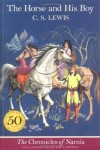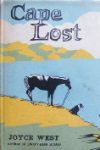Writing Influences
 On May 22, I shared a few thoughts on Why I Read, sparked by the 200th anniversary of HarperCollins, the US publisher of The Wall Of Night series.
On May 22, I shared a few thoughts on Why I Read, sparked by the 200th anniversary of HarperCollins, the US publisher of The Wall Of Night series.
 As part of its #hc200 celebrations, HarperCollins has not only been asking writers and readers to share #WhyIRead, but also asking writers to discuss topics such as writing influences.
As part of its #hc200 celebrations, HarperCollins has not only been asking writers and readers to share #WhyIRead, but also asking writers to discuss topics such as writing influences.
As an avid reader and lover of story, I don’t think I could ever point to one, or even a handful, of prior writers and books, and say, “There, that’s my influence.”
 As I said last week when discussing Why I Write, “when we love something, we naturally seek to emulate and grow the love.” So every book I have read and loved, or that has touched me significantly in some way, even if I didn’t outright love the story or the writing style, is an influence.
As I said last week when discussing Why I Write, “when we love something, we naturally seek to emulate and grow the love.” So every book I have read and loved, or that has touched me significantly in some way, even if I didn’t outright love the story or the writing style, is an influence.
 Similarly, books where I have outright disliked the story, or thought the text poorly written, have also influenced my development as a writer, because just as we naturally seek to emulate what we love, we also strive to avoid or improve on those things we don’t like.
Similarly, books where I have outright disliked the story, or thought the text poorly written, have also influenced my development as a writer, because just as we naturally seek to emulate what we love, we also strive to avoid or improve on those things we don’t like.
 Having said that, I have discussed early influences in a considerable number of interviews, citing a love of fairytales, mythology and folklore, and formative authors such as CS Lewis, Ursula Le Guin, and JRR Tolkien, as well as Rosemary Sutcliff, Alan Garner, and Joyce West.
Having said that, I have discussed early influences in a considerable number of interviews, citing a love of fairytales, mythology and folklore, and formative authors such as CS Lewis, Ursula Le Guin, and JRR Tolkien, as well as Rosemary Sutcliff, Alan Garner, and Joyce West.
 And every time I post one of my Epic Fantasy or Recommended Reading posts, where I frequently discuss books I’ve loved reading, then to some extent or other I am discussing influences. Because I primarily write Fantasy novels, my blog posts tend to focus on the genre, although the poems I’ve featured under Poetry also speak to a whole other strand of influence.
And every time I post one of my Epic Fantasy or Recommended Reading posts, where I frequently discuss books I’ve loved reading, then to some extent or other I am discussing influences. Because I primarily write Fantasy novels, my blog posts tend to focus on the genre, although the poems I’ve featured under Poetry also speak to a whole other strand of influence.
 As for Influences On Story — well, the category title accurately covers the scope of the posts. 😉 The material included also includes influences beyond other books and writers, including landscape, history, and art—although the topic, like Tolkien’s road, really could “go ever on.”
As for Influences On Story — well, the category title accurately covers the scope of the posts. 😉 The material included also includes influences beyond other books and writers, including landscape, history, and art—although the topic, like Tolkien’s road, really could “go ever on.”
But I think that will do for now. 🙂







